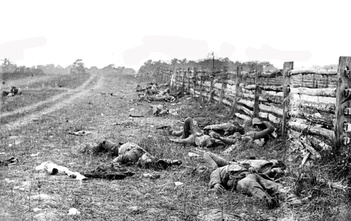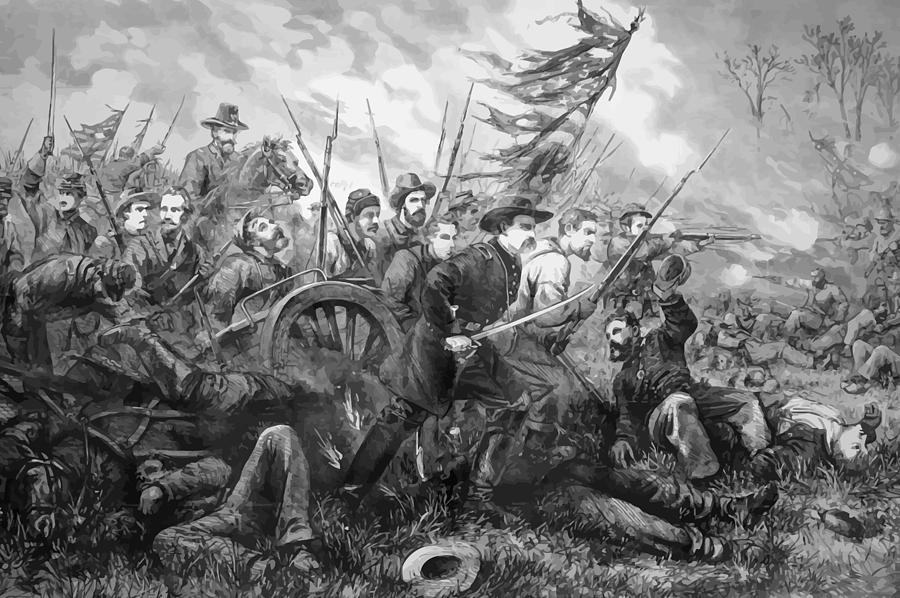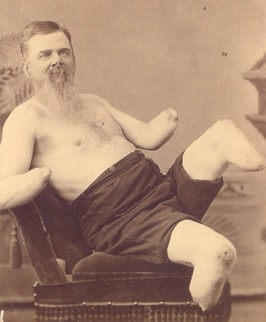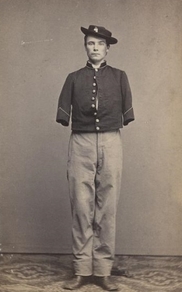The young men who either rushed to enlist in the war, for the sake of a cause, or those who were drafted against their will, had no concept of what war actually entailed. Matthew Brady was the first to photograph and distribute images of the carnage of war. He shocked the nation in 1862 when he displayed an exhibit entitled “The Dead of Antietam” in his New York Studio. Most of the general public, however, remained blissfully ignorant of the horrors their boys were experiencing on the field.
When the wounded and war-weary soldiers returned home, their families had no idea what they had suffered. They only knew that these war veterans had been changed by their experiences.
It is important to note that the tactics of war had not yet caught up with the technology of the weapons used, making it a lethal and bloody experience. Both sides employed Napoleonic techniques, marching in formation directly at their enemy. They may as well have painted a bull’s eye on themselves. The muskets and rifles used were far more accurate than those of the past, and the soft lead bullets shattered bone.
Soldiers had to march past—or sometimes over—the dead and wounded as they faced the barrel of their opponent’s rifle. And when the battle finally ended, the fields were littered with the gruesome remains of human beings, some half-alive and writhing in pain. Amputation was the most effective way to prevent infection and thus save a soldier’s life. Some field surgeons reported sawing off limbs for hours at a time. As there was no awareness of hygiene and germs, surgical instruments were often not cleaned between uses.
I’ve heard it suggested that Prohibition may have been influenced by the children of Civil War Veterans who had turned to self-medicating with alcohol. In a culture ignorant of the psychological and emotional scars these men carried, it would have been natural for them to blame the behavior without understanding that it was a means to numb the pain and dull the memories inflicted by their war experiences.
Many were placed in Insane Asylums, as their erratic behaviors could not be managed at home. “War trauma has distressed veterans in nearly every war, but the whispers of shell shock and combat fatigue never really entered the public consciousness. It was not until after Vietnam that veterans’ groups successfully lobbied the American Psychiatric Association to include post-traumatic stress disorder in the Diagnostic and Statistics Manual of Mental Disorders. Since then, our understanding and empathy for veterans afflicted with psychological trauma has grown rapidly.” (NY Times)
Today we have far more information about PTSD, or “shell shock,” and can provide counseling and care for returning veterans (as well as other victims of trauma). If you think that you, or someone you love, might be experiencing PTSD, here are some links to aid in diagnosing it:
http://www.helpguide.org/articles/ptsd-trauma/ptsd-in-veterans.htm
http://www.webmd.com/mental-health/post-traumatic-stress-disorder





 RSS Feed
RSS Feed